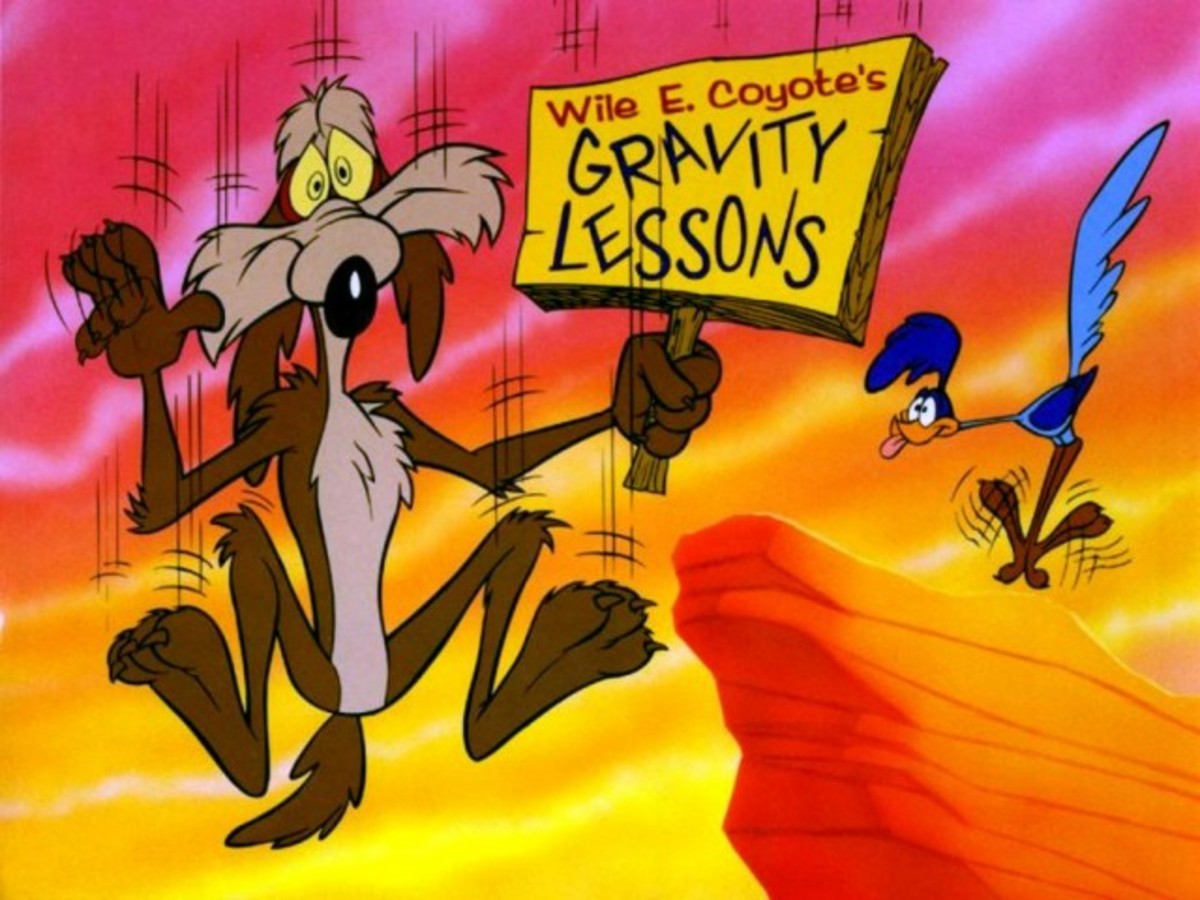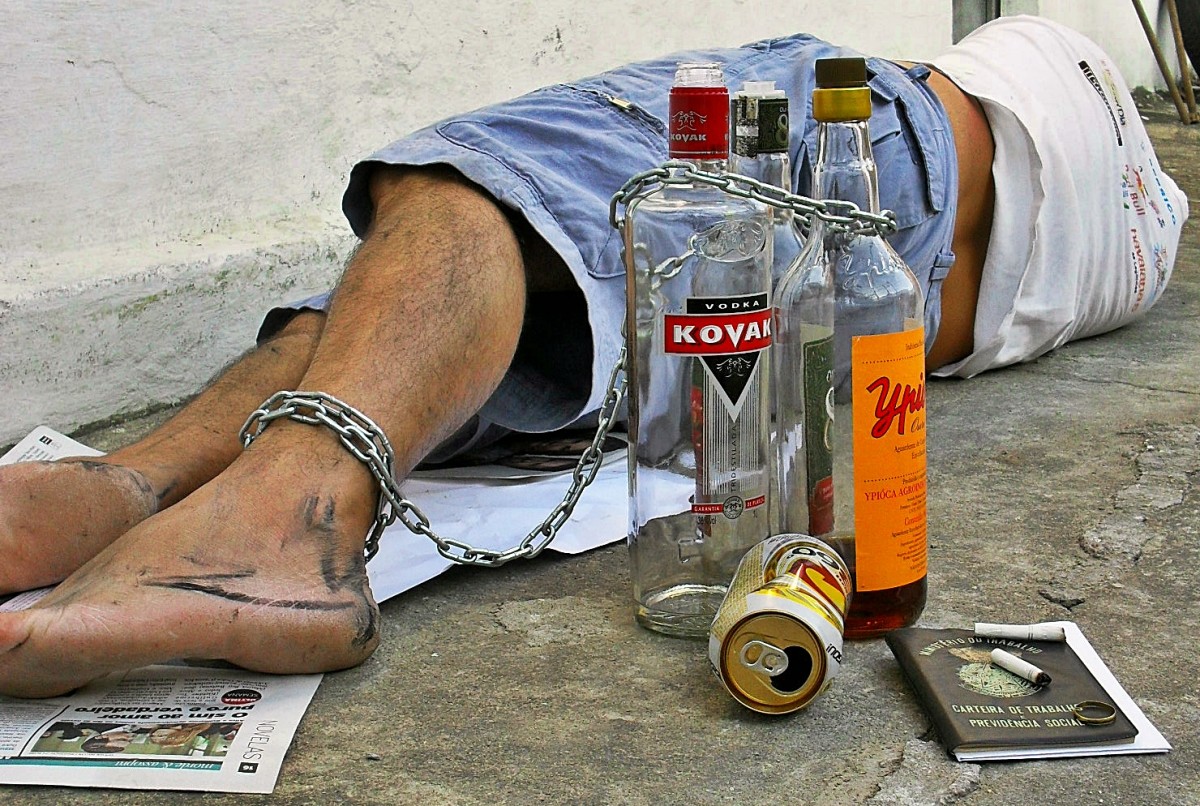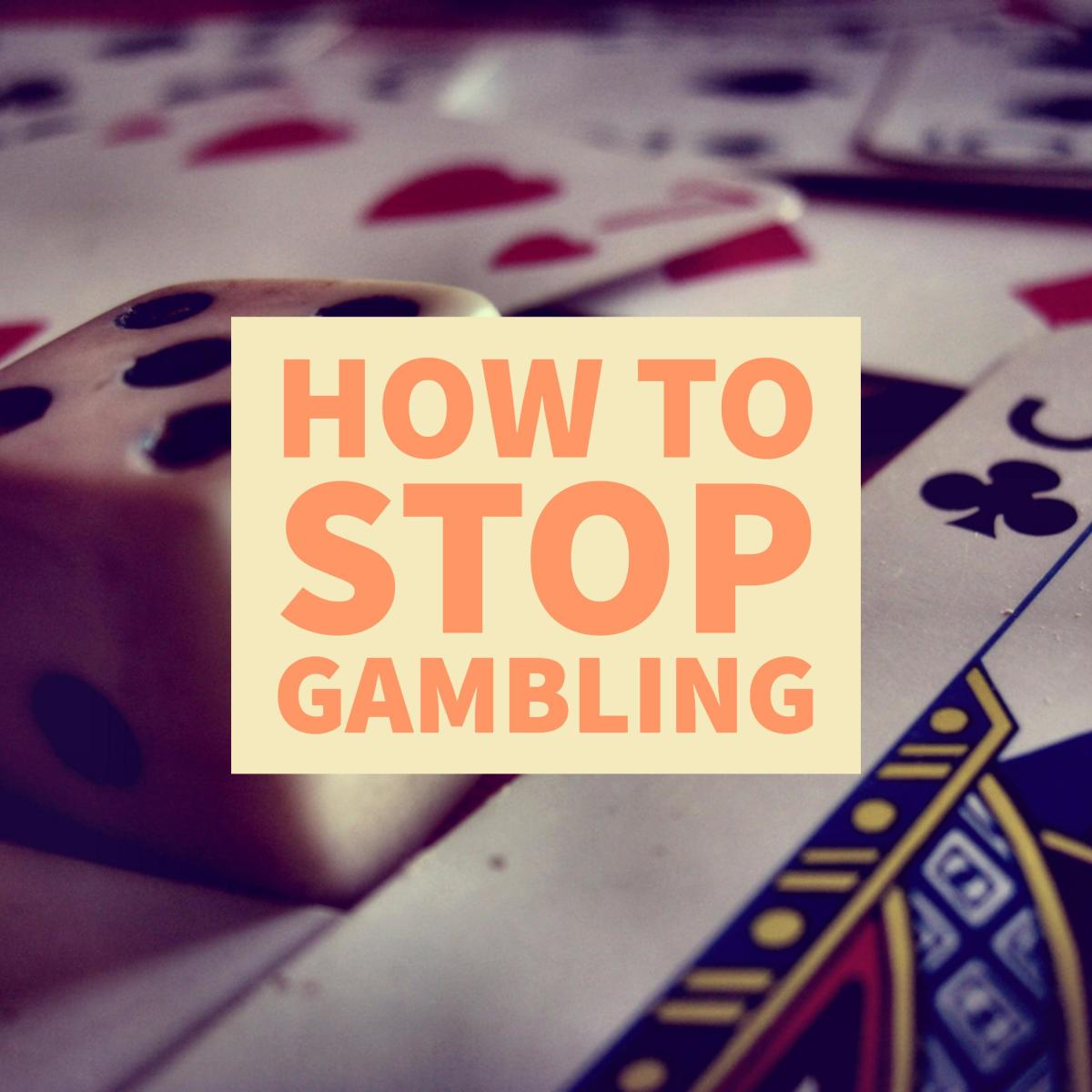RECOVERY: A Process for Personal Transformation
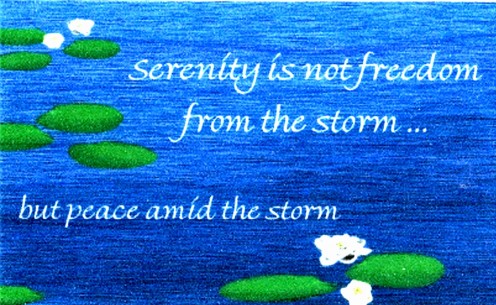
People who have struggled with the personal demons that characterize addiction (in its’ many masks and disguises) often speak and write about “Recovery” as a goal or ideal. But what does this catchall word really signify for those of use who claim to have attained and maintained their “Recovery” over many years? Are we still sick, struggling alcoholics or addicts salivating for the next drink or drug? Can our “recovery” be measured in months or years of physical abstinence from our particular “poison”? Is recovery simply the absence of active addiction? . . . Is recovery the state of “not drinking”? Hardly! As any alcoholic finding her/himself in an enforced state of “not drinking” because of legal, family or workplace problems caused by their drinking can attest, that loathsome and painful condition certainly is not marked by any joy or serenity (characteristics reputed to come with “real recovery”). On the contrary, the flavor of “not drinking”, of being “dry”, for one who has not yet found personal “Recovery”, is bitter indeed!
So what is it, then? For me, my “Recovery” is a state of being – a condition of mind, body and spirit that I must maintain in good repair daily if I am to keep it – much less, share it with others. It permits me to live comfortably in my own skin most of the time, no matter what difficulties may cross my path, without needing or wanting to blunt or blur my reality by means of drink, drug or (for me) other self- harming means such as dependence upon power and control in my relationships or maxing-out my credit cards at the mall.
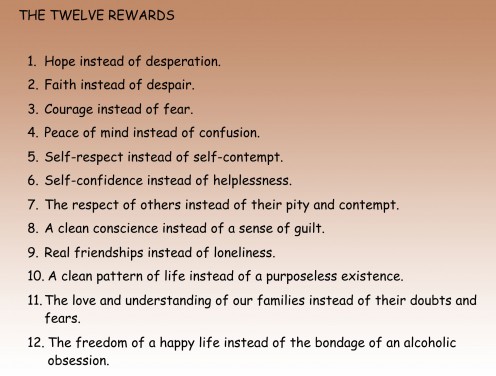
The state and process of recovery is very real and very tangible – “You know it when you have It.” – but is also difficult capture in words or to define. Like other “states of being”, like being “in love”, it exists on a continuum of shaded experiential intensity. Likewise, it is impossible to give an absolute “prescription” for recovery to fellow slaves of their compulsions seeking to transformation from hopeless addiction into hope and serenity. The closest things to that “formula for recovery” are probably the list of “12 Steps” - twelve simple and concrete daily practices to be learned and applied daily . . . with the promise that they will eventually lead the diligent apprentice to a “spiritual awakening”: Recovery. And that consistent daily practice does, in fact, lead to awakening and recovery for many sufferers. Is that the ONLY way? I do not know. I doubt it. But for me the 12 Step process worked – and ontinues to work.
In order to enter and stay “in recovery” I had to learn and practice certain specific actions - “Steps”. As if learning the moves required for dancing an intricate and beautiful dance, my execution was awkward and imperfect in the beginning. I was prone to stumble and step on toes. Eventually, with practice, each individual “step” became so much a part of me, and applying them "as needed" in my daily life became so natural and automatic that I was able to negotiate even complex and puzzling parts of the dance with ease and grace. The attitude and personality transformations I experienced in this journey are real - and probably even "measurable". My life state - and that of the people close to me - was radically altered for the better because I was able to dig deep to find the courage and willingness to practice these simple "Steps" with consistency - and to accept, with gratitude, the priceless gift that resulted - RECOVERY.

